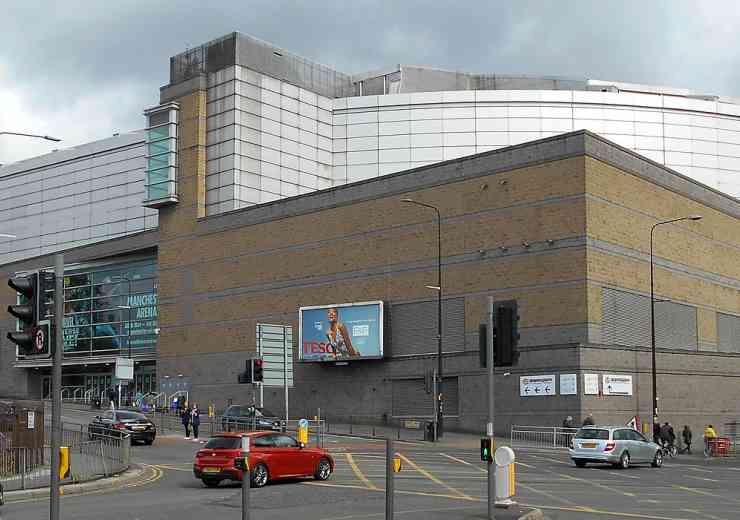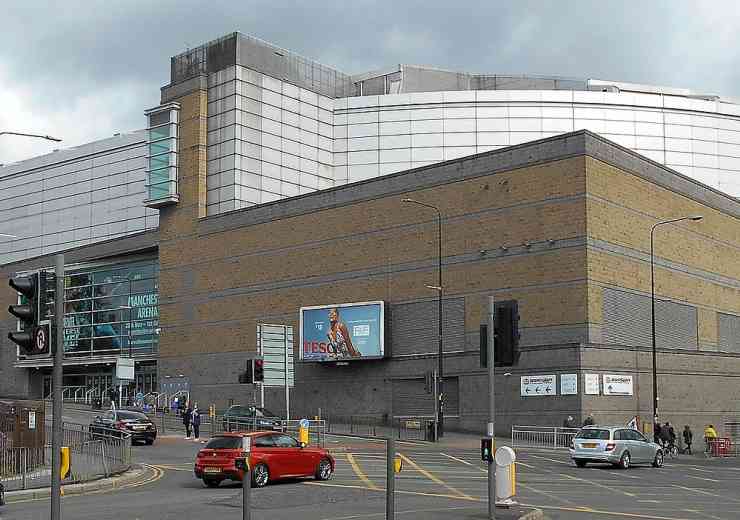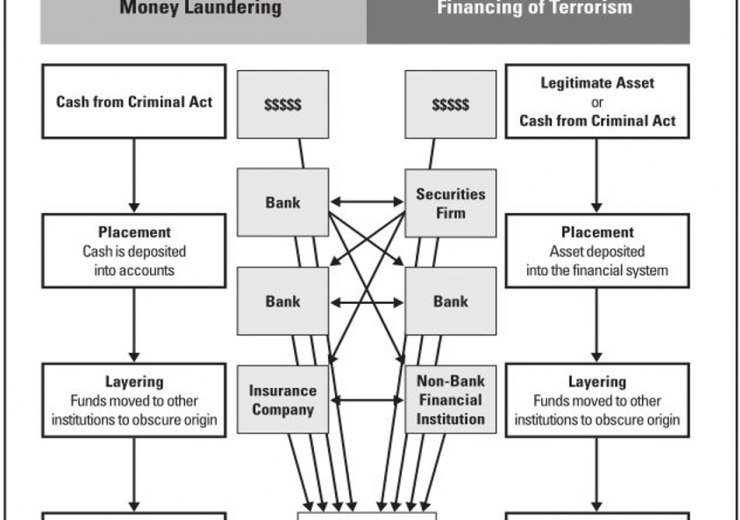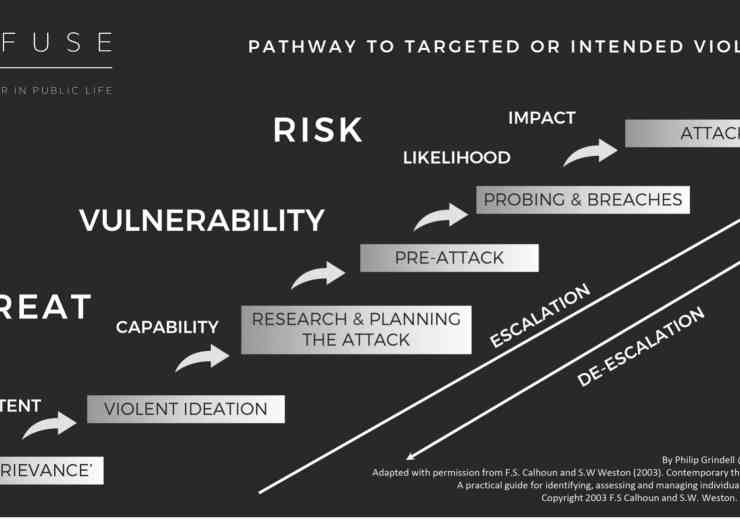
Recognising those standing up against terrorism in the UK
Transport Security Award
Airports dominate the Transport Security Award this year. First to make the shortlist is Gatwick Airport, who announced in September that facial recognition technology was set to be rolled out at eight departure gates, following a successful trial with easyJet. Instead of humans checking passports and boarding passes, the technology scans passengers' faces and compares it to the picture on their passports, and the name on their boarding pass, both of which are also scanned. It not only speeds up boarding, but also increases security on site.
Meanwhile, London’s Heathrow Airport, Europe’s busiest travel hub, has deployed a ‘bespoke set of anti-drone systems’ designed to block unmanned aerial vehicles from entering its airspace following a string of recent attempts. Designed by UK-based firm Operational Solutions, the system detects and tracks drones in surrounding airspace, with the ability to locate the drone pilot and show their location, using technology from several manufacturers. The airport has said the fast and accurate detention of drones would keep passengers and staff safe, and minimise delays.
The final shortlisted entry for this award is the Department for Transport and the British Vehicle Rental & Leasing Association (BVRLA), who launched a Rental Vehicle Security Scheme to increase counter terrorism awareness and mitigate the risk of rental vehicles being used as weapons in acts of terror. Outlined in a 10-point Code of Practice, the partners require participating firms to meet a set of requirements, including a commitment to lawfully share data and information with law enforcement; train staff to identify and report suspicious behaviour and appoint a recognised security contact.
Counter Terror Policing Award
City of London Police are the first organisation to be recognised in the Counter Terror Policing Award category, which recognises the efforts of the police sector in combatting domestic terrorism through prevention strategies and operational excellence. Under Project Servator, an initiative launched by the City of London Police in 2014, 37 per cent of stop and searches carried out in 2018/19 resulted in a positive outcome, such as weapons or illegal drugs being found or an arrest. This is compared to a national average positive outcome rate of 17 per cent across UK police forces in 2018/19.
The tactics involve the use of highly visible but unpredictable deployments of specially trained officers (both uniformed and plain clothed) in operations to disrupt would-be criminals and terrorists, whilst encouraging vigilance and acting as a deterrent. Its success also relies on the support of businesses and the wider community to create a network of vigilance.
Also shortlisted is Leicestershire Police, who has begun trialling Project Servator at East Midlands Airport, which will see local police, business and the public working together to disrupt a range of criminal activity, including terrorism. The policing tactic sees the deployment of both highly visible and plain-clothed police officers, supported by other resources such as dogs, firearms officers, vehicle checkpoints, Automatic Number Plate Recognition (ANPR) and live-monitored CCTV. The trial is being carried out with the intention of adding another layer of security to existing policing methods at the airport.
The third shortlisted entry is for Counter Terrorism Policing for their ‘Summer Security’ initiative. Launched last summer, police reached out to festival-goers who attended live events via the #BeSafeBeSound social media campaign. Led by Deputy Assistant Commissioner Lucy D’Orsi, the police worked with UK Music to reach the hundreds of thousands of people who attended live events last summer, releasing a number of videos on social media and providing key advice before and during the events.
Outstanding Contribution to Counter Terrorism
Recognising an organisation or individual from either the private or government sector whose contribution to worldwide anti-terrorism efforts has been outstanding, the Outstanding Contribution to Counter Terrorism Award is considered the stand-out category. In the inaugural Counter Terror Awards, Mark Rowley, then the Assistant Commissioner for the Metropolitan Police, was the recipient, and last year the award was split between public sector contribution, won by Chief Superintendent Keith Gilert, Senior Police Adviser at the Defence Science and Research Laboratory, and private sector contribution, won by SecuriGroup’s Allan Burnett.
This year, the category shortlist begins with Assistant Commissioner Neil Basu, who succeeded Rowley in March 2018. Unlike Rowley, Basu has spent his whole career serving with the Metropolitan Police. The 52-year-old, never trained as a firearms officer himself, was the commander in charge of armed policing between 2013 and 2014, before being appointed Deputy Assistant Commissioner in 2015. Basu’s first counter terror operation was to respond to the Novichok poisonings in Salisbury, and, having previously been shy in front of the camera, Basu stepped forward last year in stressing how a no-deal Brexit deal would harm the UK’s safety and security. Basu also led the investigation following the terrorist incident on London Bridge last November, as well as the incident at the start of this month.
“As the mother of a victim of terror, I don’t have the power to prevent other parents or families having to bury their loved ones like I did. But you do.” Those were the words of Figen Murray, the mother of Manchester Arena attack victim Martyn Hett, as she opened the third annual Step Change Summit at the Farnborough Exhibition Centre in March last year. Speaking to a 300-strong audience of business leaders and security experts, Mrs Murray explained the devastating personal consequences of the attack at the Arianna Grande concert - providing a heart-wrenching reminder why the Step Change Programme is so important. She also provided the keynote address at the International Security Expo in December, introducing Martyn’s Law in memory of her son and has grown into a vocal advocate for better security measures across the UK event venue scene.
Completing the shortlist for the Outstanding Contribution to Counter Terrorism Award is Deputy Assistant Commissioner Lucy D’Orsi. Having joined the police force in 1992, D’Orsi has a background in covert firearms operations and heading policing for London boroughs. At the end of 2016, she was promoted to Deputy Assistant posted to Specialist Operations, leading on Protection and Security, including Royalty and Specialist Protection, Parliamentary and Diplomatic Protection, Aviation Policing and Protective Security Operations. For the last few years, her job has led on Counter Terrorism Policing’s engagement with private businesses, Operation Temperer, protective security and preparedness.
















